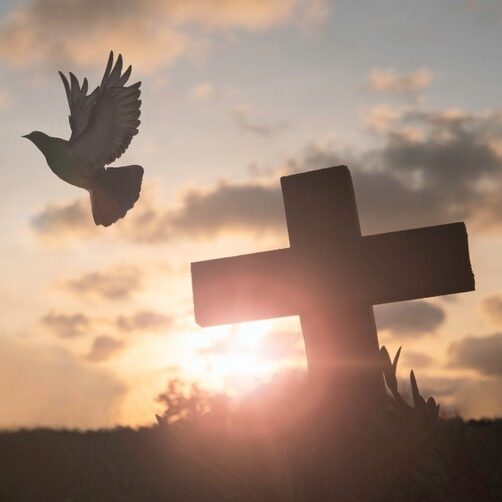I was brought up in a church where the church ‘calendar’ was regarded as really quite unimportant – apart from Christmas and Easter. Lent and Pentecost were rarely mentioned, and even Christmas and Easter focussed on the culmination of the period, with little thought given to the weeks leading up to them.
However, these limited perspectives have changed quite a lot for me in the past few years. I have begun to appreciate in a new way the whole of Jesus’ ministry and indeed the whole revelation of God in the Bible – and by extension the nuances and cycles of the annual church calendar. The Bible may be a ‘library,’ but it is also a huge single narrative of creation, sin, deliverance, resurrection, judgement, and new creation. This ‘big picture’ view of the Bible is so very important since much of its substantial teaching and many of its big events seem to be increasingly relegated to the ‘back benches’ of our thoughts, and even within our churches.
But it really must be reclaimed if we are to reinvigorate our approach to the big ‘festivals’ of the church calendar, which are so much in danger of being hijacked by a societal emphasis on food, holidaying, and family fun. The Apostle Paul could hardly be clearer as he spells it out in 2 Timothy 3: “how from infancy you have known the Holy Scriptures, which are able to make you wise for salvation through faith in Christ Jesus. All Scripture is God-breathed and is useful for teaching, rebuking, correcting and training in righteousness, that the servant of God may be thoroughly equipped for every good work.” He saw the whole of scripture as being hugely important for the whole of life.
As the ‘season’ of Lent comes to its end with the glorious celebration of Easter Day, I have found it energising to be invited to think more carefully why it is so important, and to be taken to so many Old Testament scriptures. For example, Ash Wednesday, the first day of Lent, is a reminder, amongst other things, of the creation story in Genesis 2:7 when God created us out of the dust of the earth. An important reminder of our profound mortality in the face of a sovereign and eternal God.
The renewal and revitalisation of our prayer life is central to the church’s historic understanding of Lent, and in the Psalms, there is an extraordinary treasure trove of prayers covering experiences from being in deep distress to needing to express profound gratitude. From frustration at the prevalence and evil of sin to the deep contentment of being in the hand of our ever-gracious God.
And the significance of Christ’s death on the cross is of course spelled out in Isaiah 53, “But he was pierced for our transgressions, he was crushed for our iniquities; the punishment that brought us peace was on him, and by his wounds we are healed. We all, like sheep, have gone astray, each of us has turned to our own way; and the Lord has laid on Him the iniquity of us all.”
With Lent now early over, are we now in real danger of regarding Easter as just a few days that move us from deep contemplation of the cross to the joy of the resurrection. It is often not realised that in the church ‘calendar’ Easter lasts for the 50 days until Pentecost! Even the word itself means ‘fifty’ and has its Biblical roots in Leviticus 23 and Deuteronomy 16. During these 50 days of the 2025 Easter ‘season’, the Church is called to celebrate the resurrection of Jesus in a few days’ time (on 20 April), his ascension into heaven (on 29 May), and Pentecost itself on 8 June.
So, may I make a plea well in advance for this ‘season’ in 2026, especially if you have not recognised Lent this year? Feast on the whole of Scripture! Let us not rush to be supermarket driven and identify Lent and Easter with food… with pancakes, hot cross buns, chocolate, and maybe roast lamb? These ninety consecutive days from the beginning of Lent to Pentecost are designed to feed our souls well – very well – for the other 275 days of both the calendar year and the church year!
Very Rev Dr Norman Hamilton is a retired Presbyterian minister, former Moderator of the General Assembly, and Chair of Contemporary Christianity.
Please note that the statements and views expressed in this article of those of the author and do not necessarily represent those of Contemporary Christianity.
Note: Thank you for reading our more regular blogs. We will not post one next week (Easter Week) but will plan to post a regular PS from week commencing 29th April.


congratulations, Norman, on an excellent reflection. Almost all my adult life I have appreciated the Church’s calendar. The importance of it was brought home to me especially through visiting Taize, the ecumenical community in France founded by the Swiss Reformed Pastor, Roger Schutz, after the Second World War. Roger Schutz taught that through praying the psalms and scripture readings of the church’s calendar the love of Christ wells up within us.
Well said, Norman! Thank you.
Really enjoyed this reflection Norman. I find the Church calendar is helpful in giving the big picture and making us look at the whole of Scripture